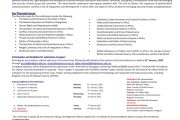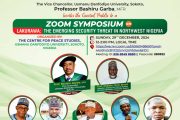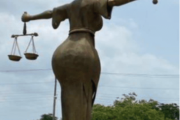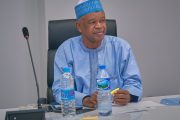
Gen T Y Danjuma
Nigeria appears to have formally given a nod for utilization of resilience as backbone of personnel, local, regional and national shock therapy against uncertainties of the times. General Theophilus Danjuma, the Chairman, Presidential Committee on the North-East Initiative, (PCNI) declared in Gombe that without community resilience, the military would not have had so much success in the war against Boko Haram. Speaking at a Public Policy Dialogue on Community Resilience organised by Kano based Centre for Information Technology and Development, (CITAD), General Danjuma, a former Minister of Defence and leading philanthropist in Nigeria said they in the PCNI were interested in reinforcing community resilience and support the architecture of security in all the communities in the North-East. He expressed belief that the Public Policy Dialogue would help in no small measure in making it possible to achieve more of the committee’s tasks.
General T.Y Danjuma who was represented by Alhaji Tijjani Musa Tumsah, PCNI deputy chairman stressed how collaboration, coordination, communication formed the bedrock of the PCNI mandate, with what he called The Buhari Plan as a strategic implementation framework for intervention in the North-East. According to him, working in conjunction with the World Bank and the United Nations, the PCNI has already launched a dashboard which is a tool for monitoring, much similar to the “Take Action Platform” to register all initiatives and intervention in the North-East for clarity and for the avoidance of duplication of efforts. He, therefore, urged civil as well as community based organisations to do their registration on the dashboard so that they could harmonize all activities. General Danjuma expressed satisfaction with CITAD’s progress on the research, saying the dialogue was of particular interest to the Presidential Committee on the North-East Initiative.
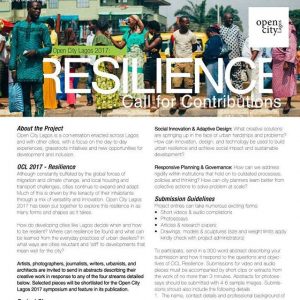
The study of Resilience might even have blossomed in Nigeria
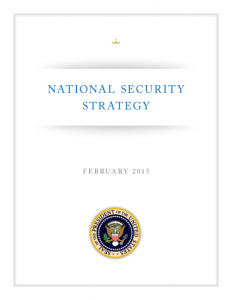
Resilience was hardly found in this sort of document before 2007
This might be the first time that a major public policy actor has spoken in endorsement of resilience as the corner stone for bouncing back in the aftermath of a shock, disaster or collective trauma. A debate has been raging around resilience which its critics in academia, security and the policy mill argue to have been hijacked by big business or the neoliberal establishment in advanced industrial societies to imagine the future as disaster and how to bounce back. The alarm bells went off when resilience displaced the word security in the National Security Strategy and organizational strategy documents of great powers/actors such as the United States, the UK, the UN, the IMF and the World Bank around 2007. Before then, such a word never featured in such documents. Piqued by the phenomenon, radicals and critics alleged that big business had arrived to hijack the concept, connect it to ‘Happiness Studies’ in such departments as Economics and Psychology in the universities in promotion of an acquiescent “happy resilient citizen” that the United Nations is also said to be promoting. One of the most notable critics of that development says “Resilience connects the emotional management of personal problems with the wider security agenda and the logic of accumulation during a period of crisis”. In other words, resilience is not an innocent word but one with blinkers.
Whether General Danjuma’s move would change the conceptual career of resilience in Nigeria is what might be interesting to watch out for. It is not clear if the ideological baggage is why resilience has not been quite a smart vocabulary in the Nigerian public sphere. Not being an industrial society, such a debate in Nigeria, if it ever takes place, may not take the form it took in Europe and North America.

The issue is the cultural, psychic and spatial resources which locals mobilised to withstand Boko Haram, for instance, and to what extent vis-a-vis the subject matter of resilience in national security
Meanwhile, the insurgency in the North-East drastically destroyed many villages, towns, cities or communities in general as many of them came under attacks launched by the insurgents. However, some communities stood up to the insurgents and repelled the fighters against crippling their lives, using resilient mechanisms. With support from United States Institute of Peace (USIP), the Center for Information Technology and Development (CITAD), for instance, is researching into what the strategies used by such communities to defend themselves during the insurgency were. This is in order to fine tune them towards recovery after shock or proactive capabilities as well as encourage other communities to also adopt resilience in the future. What we set out to do was to see what the strengths that have been used by the communities were and how that could be enhanced in future, said Professor Jibrin Ibrahim who expatiated on the logic of the exercise.
The Public Policy Dialogue in Gombe is coming after field research in Adamawa, Bauchi, Jigawa, Kano and Yobe states. For CITAD, it provides the various stakeholders in attendance a space for further deliberations and engagement with certain issues. Goodwill messages came from the Director-General of the National Emergency Management Agency (NEMA) while a delegation of the Presidential Committee on the North-East Initiative was in attendance. Academics, administrators, legal practitioners, members of state houses of assembly from the North-East region, women groups, civil society organizations, people living with disability, media and similar stakeholders brought up the list.








